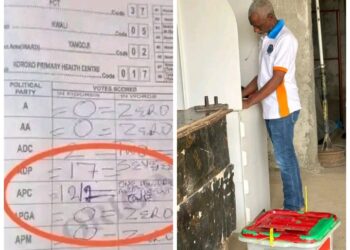The Court of Appeal in Abuja has upheld the authority of the Economic and Financial Crimes Commission (EFCC) to investigate and prosecute cases involving tax evasion.
In a unanimous judgment delivered by a three-member panel comprising Justices Balkisu Bello Aliyu, Adebukunola Banjoko, and Okon Efreti Abang, the appellate court overturned a ruling by Justice Taiwo O. Taiwo of the Federal High Court, Abuja, which had previously restricted the EFCC from investigating tax-related offences.
Justice Aliyu, who read the lead judgment, faulted the decision of the lower court, which held that the EFCC “has no statutory power to cause investigation on tax evasion.” The trial court had also ruled that the Commission could not extend its money laundering investigations to cover tax evasion, describing it as a predicate offence beyond the Commission’s scope.
The case stemmed from a suit filed by Insurance Resourcery and Consultancy Service Limited, which challenged the EFCC’s decision to investigate its officials for alleged tax evasion. The firm argued that the Commission lacked the legal authority to do so, citing provisions of the Federal Inland Revenue Service (FIRS) Act in support of its position.
In response, the EFCC took the matter to the Court of Appeal, invoking Section 46 of its Establishment Act and raising five grounds of appeal. A key issue was whether the EFCC had the legal basis to investigate the company over alleged money laundering tied to tax evasion.
Justice Aliyu, in her ruling, held that the trial judge erred in law. She stated that the EFCC “has the power to investigate tax evasion in view of Section 46 of the EFCC Act.” She added that “since the FIRS Act itself specifically provides and supports collaboration between the FIRS and the EFCC and other Government Agencies in the investigation and enforcement of tax evasion, it followed that the above finding of the trial court that the Appellant cannot extend its investigation of money laundering to tax evasion as a predicate offence is not supported by law and therefore wrong and I so hold.”
The appellate court resolved all issues in favour of the anti-graft agency. Justice Aliyu concluded: “Having resolved the two issues for determination in favour of the Appellant means that the appeal is meritorious and it is allowed by me. Consequently, the judgment of the Federal High Court, sitting in Abuja, delivered on 28th July 2022 by Hon. Justice Taiwo. O. TAIWO IN Suit No: FHC/ABJ/CS/457/2022 is set aside in its entirety.”
The ruling reaffirms the EFCC’s statutory mandate to act against financial crimes that involve tax-related components.





